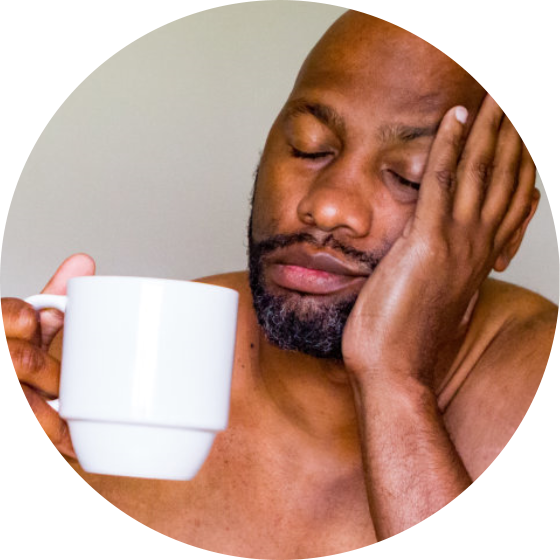Caffeine and Sleep
Last updated: December 2020
Home > Information & Support > Adults > Sleep Hub >Caffeine is a widely used powerful stimulant, often used first thing in a morning or to stay alert throughout the day.
It blocks sleep inducing chemicals and increases adrenaline production which reduces sleep quality and prevents you feeling rested.
Its effects are fairly quick, kicking in around 15 minutes after its consumed, and once in the body the effects are long lasting. Caffeine has an average half life of five to seven hours so if you drink a cup of coffee around 8pm, 50% is still metabolising at 2am.
While caffeine increases alertness, it can (in large quantities) cause insomnia, anxiety, headaches and dizziness and a ‘caffeine crash’.
The more you consume, the more tolerant you become and the more you need to have the same desired effect – ultimately making you more vulnerable to negative side effects.

Caffeine is found in coffee, tea, energy drinks, fizzy pop as well as chocolate and certain drugs which all count towards your daily consumption. However, caffeine affects us differently. Some people can drink it in the evening and it has no effect on their sleep, others may find caffeine from midday impacts on their ability to sleep well.
If you want to improve the quality of your sleep, leave enough time between the last cuppa and bedtime. Remember to reduce your caffeine intake gradually by cutting down on the number of cups each day. Going ‘cold turkey’ can cause headaches and insomnia.
